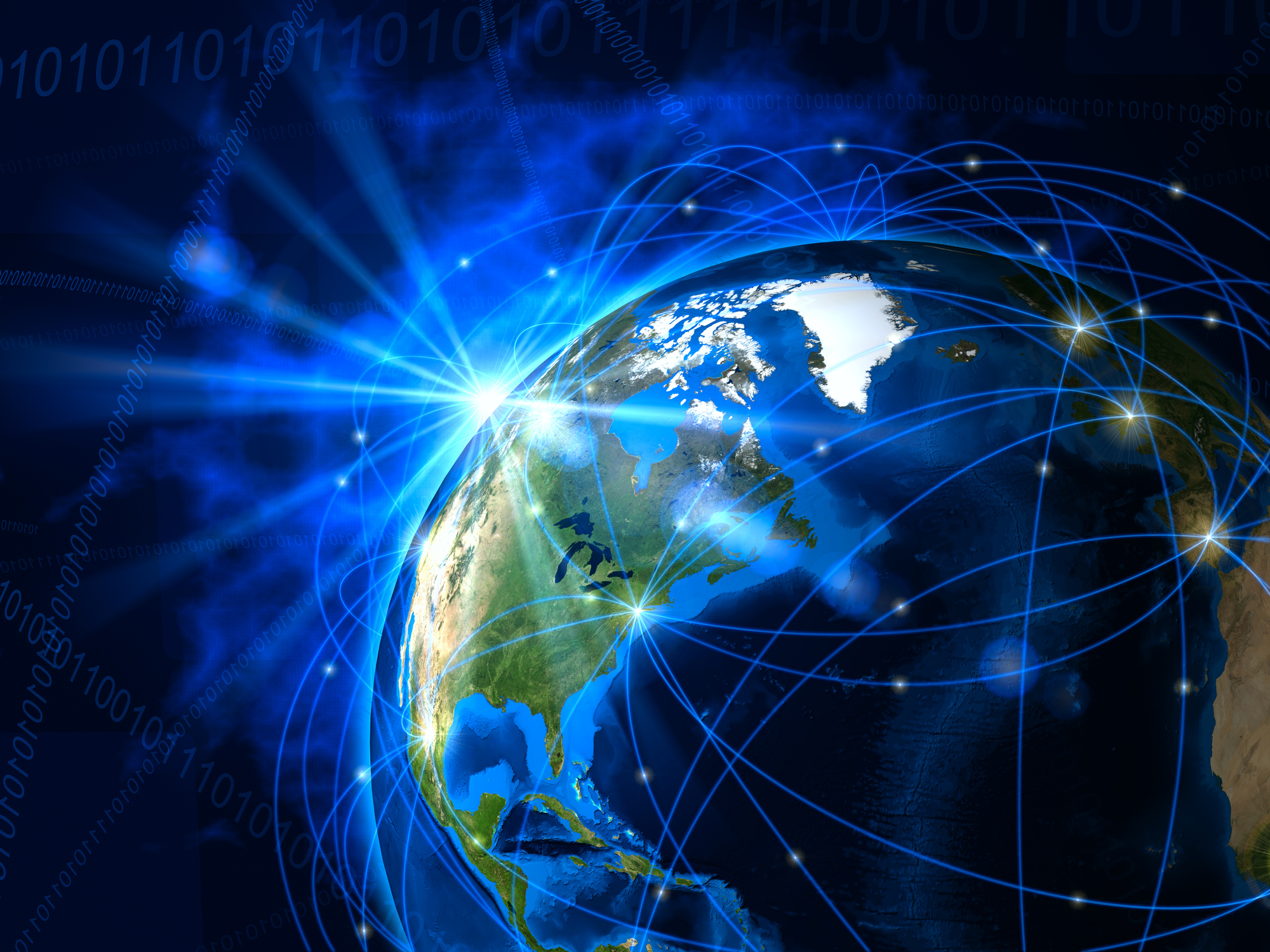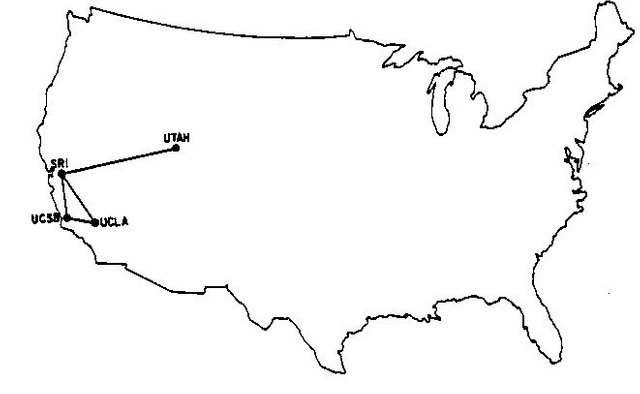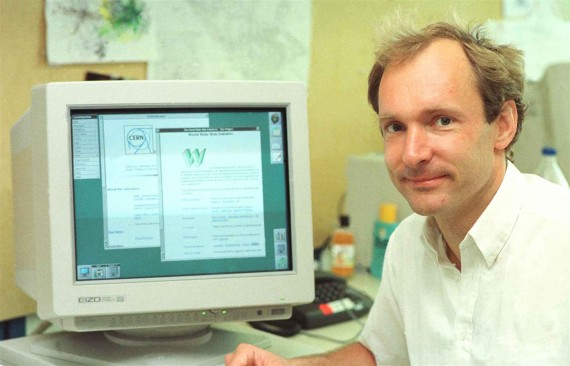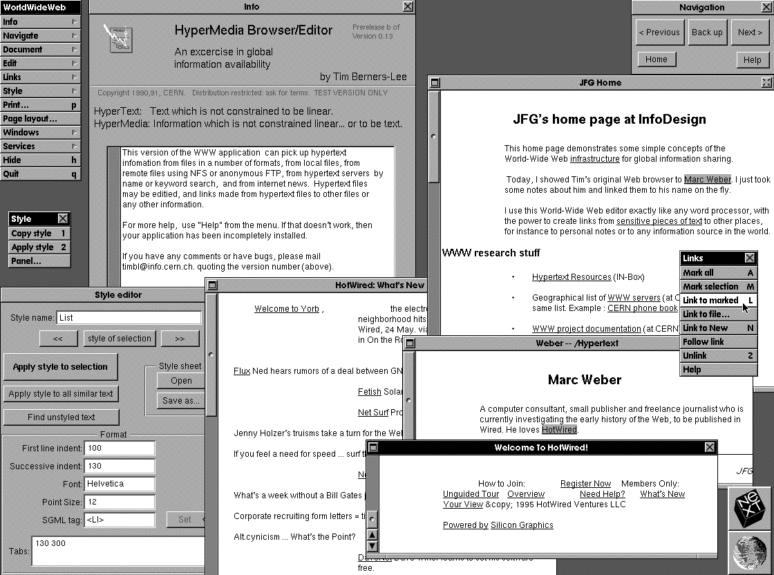What is INTERNET ??. History of Internet !

Not only can the Internet be one of the most revolutionary inventions that man has succeeded in producing, changing our lives irremediably, both for good and for less well. But where did this idea come from? How has the Internet precursor been transformed into the immense "spider cloth" of the present and how will it be transformed?
The Internet was not from the very beginning as we know it. Last year's Internet is no longer the internet now, so the talk of what was 20 years ago is very different about what it is now. I got late quite late in this "train", somewhere in 2006, but since then, by 2017, many have happened and now I am constantly connected to the Internet using a phone that is much stronger than the first computer I ever had, I had.
Internet precursors
We have to add two more times, and that brings us in the early 1950s, when the first computers appeared in the world. There were visionaries during this period, like Vannevar Bush, who imagined the memexes, systems that would allow people to store all sorts of information.
The first such computers were directly connected to a terminal used by an individual user, and then the first Local Area Networks, or LAN, were connected that connected devices from the same room, for example. Wide Area Networks, or WAN, have arisen with the need to connect computers at greater distances.
From ARPANET to the Internet
Before the Internet, we need to talk about ARPANET, more precisely about October 29, 1969, at 22:30. Then the first link was created and used between the University of California and the Stanford Research Institute. Although the first two letters sent by it, L and O, arrived at the destination, after the letter G was sent, the system yielded, but, as Leonard Kleinrock noted, a revolution had begun.

ARPANET has grown quite quickly since then, becoming little by little the technical core of the future internet. At the same time, other networks such as CYCLADES, X.25 or NPL have begun to be developed. Diversity in itself would not necessarily be a problem, indeed, on the contrary, especially since some of these efforts were supported by states other than the US, with the difference that each network used its own communication methods.
The unification of these programs gradually took place, with the creation of the TCP / IP protocol, which was to replace other protocols, such as the NCP, used by the early ARPANET. Also during this period, we first meet the term internet, used as an abbreviation for internetworking. The almost complete form of the TCP / IP protocol occurred in the second part of 1978, and the IPv4 standard was also created during this period.
The Internet becomes open to the general public
The Internet we know is beginning to take shape in the 1980s. Until then, networks of this kind did not have commercial utility, being used either for research purposes or for military purposes. The 1980s brought about controversy over the use of the Internet for commercial purposes, although the term "commercial" was not well defined. Restrictions will only disappear completely in 1995, but until then in the late 1980s, the first internet providers such as UUNET, Netcom, or PSINet have already appeared.
The WWW era begins
1989 is an important year for the Internet, as we enter the World Wide World, thanks to Sir Tim Berners-Lee. It has made great efforts to realize the WWW we know today by working on creating HTTP (for transmitting information between computers), but also creating HTML (for creating web pages). At the same time, Berners-Lee created the first browser, called unsurprisingly WorldWideWeb! [Sir-tim-berners-lee.jpg] ( )
)
The WorldWideWeb browser was rather rudimentary and not very accessible to people without technical knowledge, so that in 1993 the internet became more popular thanks to the Mosaic browser. It has a great advantage by uploading images on the same page as the text. A year later, Netscape Navigator appears on the market, and a first browser war wins. The word "when two quarrels, the third wins" also applies here because Internet Explorer has won the battle for supremacy among browsers, becoming a leader for a long time.

From then on until now
Many things that are everywhere today were unimaginable for the common man at the turn of the third millennium. Mobile phones were mostly used in business, the social media concept did not exist, and sites like YouTube had not yet appeared. For kids who are about 10 years old, it will be hard to imagine the concept of the world where you did not instantly see where your friends are going and where you called your phone on the fixed phone, not Facebook, directly from your mobile. Many other devices, sites and technologies were still awaiting their creation in 2000, but now they have always been here.
We are not the most
And yet, we are not the ones with the most significant presence on the Internet. The devices we use more and more in everyday life, whether we are talking phones, refrigerators or even bulbs, have become intelligent. Intelligent devices communicate with each other using IoT, or the Internet of Things, which we know as the Internet of All Things. Compared to the 3.6 billion Internet users in 2016, we're dealing with 22.9 billion smart devices of any kind connected to IoT, and over the next three years, this number could double, according to predictions . To put the number of Internet users in context, you have a short list of the global penetration of the Internet since 1990.
1990: 2.8 million internet users (0.05% of the world's population);
-2002: 631 million users (11% of the planet's population);
-2010: 1.8 billion users (26.6% of the world's population);
-2016: 3.6 billion users (49.5% of the planet's population).
-In the past few years, especially since smartphones have boosted and become unexpectedly powerful, but also since many
other smart devices have started to reach the market at affordable prices for ordinary customers, I began to understand
better how much the internet transforms our society. People have access to more information than ever before
smart devices often make life easier.

For the moment, however, we can enjoy smartphones with which we can instantly pay to the cash register, the speed of the 4G + internet (Vodafone's 4G + Supernet network delivers download speeds above 1Gbps) by smartwatchs that track our pace heart and sleep patterns or the light bulbs that simultaneously provide us with music. We begin to forget about computers, as well as proof that out of the total traffic, the traffic on mobile devices has reached 51% and the trend is growing. It remains to be seen how much our growing convenience will affect, but I tend to think that the benefits will overcome the disadvantages.
Information is not knowledge.
- Albert Einstein